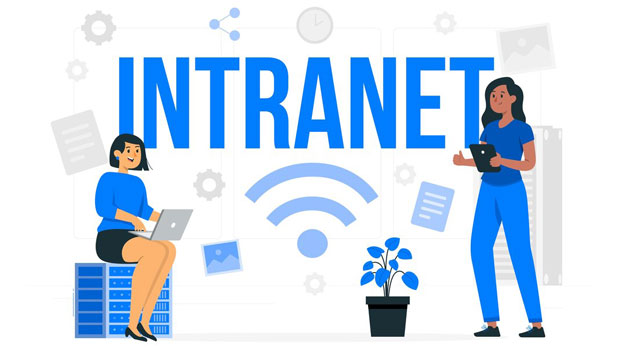Static ip proxies are highly valued for their reliability, speed, and security, making them a popular choice for businesses and individuals needing consistent and untraceable online identities. PYPROXY, a provider of such services, offers Static ip proxy solutions that support several key protocols, ensuring versatile usage across various applications. These protocols include HTTP, HTTPS, SOCKS5, and more, allowing users to tailor their proxy configurations according to their specific requirements. This flexibility is essential for everything from browsing and web scraping to online gaming and cybersecurity tasks. Understanding the protocols supported by Static IP Proxy is crucial for making the most out of this service and ensuring smooth, uninterrupted online operations. Understanding Static IP ProxiesStatic IP proxies work by assigning a fixed, unchanging IP address to the user. Unlike dynamic proxies, which rotate IPs periodically, Static IP proxies ensure that the same IP is used consistently. This feature is particularly useful for tasks requiring IP reputation management, logging in to accounts without triggering security alerts, or bypassing geographical restrictions. The reliability and stability of a Static IP are critical for users engaged in activities like web scraping, where constant access to websites without IP blocking is necessary.Supported Protocols by PyProxy's Static IP ProxyPyProxy’s Static IP Proxy supports multiple protocols, each serving a different purpose. These protocols cater to a wide range of online tasks, enhancing the proxy’s utility across various use cases.1. HTTP and HTTPS ProtocolsThe HTTP and HTTPS protocols are the most commonly used by web browsers to access websites. When using PyProxy’s Static IP Proxy, both protocols allow users to route their internet traffic through the proxy server, ensuring the requests are made from the proxy’s IP address, not the user’s local one.- HTTP: This is an unsecured protocol used primarily for browsing and accessing non-sensitive web content. While HTTP itself does not offer encryption, its use with a Static IP ensures that the same IP address is consistently seen by the websites you access, which is critical for maintaining a steady web presence. - HTTPS: The HTTPS protocol, on the other hand, is the secure version of HTTP. It encrypts the data transferred between the client and the server, ensuring confidentiality and security. Using HTTPS with PyProxy’s Static IP service ensures that not only is your IP consistent, but your data is also encrypted, providing an extra layer of privacy and security.2. SOCKS5 ProtocolSOCKS5 is another protocol supported by PyProxy’s Static IP Proxy, offering significant advantages in terms of flexibility and security. Unlike HTTP/HTTPS proxies, SOCKS5 can handle a broader range of traffic, including FTP, P2P, and other application protocols.- Compatibility: sock s5 proxies can route any type of internet traffic, not just HTTP/HTTPS requests. This makes them suitable for a wide range of activities, such as online gaming, torrenting, or connecting to email servers. - Anonymity: SOCKS5 provides a higher level of anonymity because it does not modify or log the data packets sent through the proxy. This makes it an excellent choice for users who prioritize privacy and anonymity while online.- Speed and Efficiency: SOCKS5 proxies are typically faster than traditional proxies because they operate at a lower level in the TCP/IP stack, meaning they impose less overhead on internet traffic. With Static IP functionality, users can benefit from both consistent IPs and faster data transmission.3. FTP ProtocolThe FTP (File Transfer Protocol) is primarily used for transferring large files between a client and a server. PyProxy’s Static IP Proxy supports FTP, allowing users to upload or download files without exposing their local IP address. This is particularly useful for individuals managing websites, sharing large datasets, or handling remote files securely.- Secure FTP: For those concerned with data protection, PyProxy also supports FTPS (FTP Secure), which encrypts FTP traffic. This provides an additional layer of security, ensuring that sensitive file transfers remain private while still benefiting from the stability of a Static IP address.4. POP3/IMAP ProtocolsFor individuals or businesses managing large volumes of email communication, PyProxy’s Static IP Proxy can support email protocols such as POP3 and IMAP. These protocols are commonly used to retrieve and store emails from mail servers.- POP3: The Post Office Protocol version 3 (POP3) is used to retrieve email from a server, storing it locally on the client’s device. With PyProxy, users can manage their email accounts securely and consistently, without exposing their real IP addresses to the mail servers.- IMAP: The Internet Message Access Protocol (IMAP) is more sophisticated, allowing email clients to manage messages stored on the mail server itself. Using Static IP with IMAP ensures that a consistent IP address is used for accessing emails, enhancing security and reducing the likelihood of account lockouts due to suspicious activity.5. SIP ProtocolThe Session Initiation Protocol (SIP) is often used in VoIP (Voice over IP) communications. PyProxy’s Static IP Proxy also supports SIP, ensuring that VoIP calls can be made securely and anonymously.- VoIP Services: SIP is used by various VoIP providers to set up and manage calls. With Static IP Proxy support, users can enjoy a stable connection for making calls without worrying about their real IP being exposed or their calls being intercepted. - Security: SIP can be combined with encryption protocols like TLS to enhance the security of voice communications, providing a private and encrypted line for sensitive discussions.Benefits of Using Static IP Proxies with Different ProtocolsWhen you choose PyProxy’s Static IP Proxy service, you benefit from a variety of advantages across different protocols.1. Enhanced Security and PrivacyRegardless of the protocol being used, Static IP proxies from PyProxy offer enhanced security and privacy. Whether browsing the web via HTTP, downloading files via FTP, or making secure VoIP calls through SIP, the consistent IP ensures that users’ online presence remains private and difficult to trace. This is especially important for businesses involved in data-sensitive activities or for individuals who value online anonymity.2. Bypassing Geo-restrictionsUsing a Static IP Proxy allows users to easily bypass geographical restrictions and access content from different regions. This is particularly useful for streaming, gaming, or accessing region-specific services that are otherwise restricted based on location.3. Avoiding IP BlacklistingStatic IP proxies also help businesses avoid the issue of IP blacklisting, which is a common problem for users engaging in web scraping or automation. With a Static IP, websites will recognize and treat your connection as a legitimate source, reducing the chances of being blocked or flagged.PyProxy’s Static IP Proxy service supports a wide array of protocols, ensuring its suitability for a variety of online tasks, from secure browsing and email management to file transfers and VoIP communication. Understanding the protocols available allows users to leverage the full potential of Static IP proxies, ensuring they enjoy a seamless, secure, and private online experience. Whether you’re an individual looking for privacy or a business managing sensitive operations, PyProxy’s Static IP Proxy offers an invaluable tool for your online needs.
Aug 25, 2025



































































